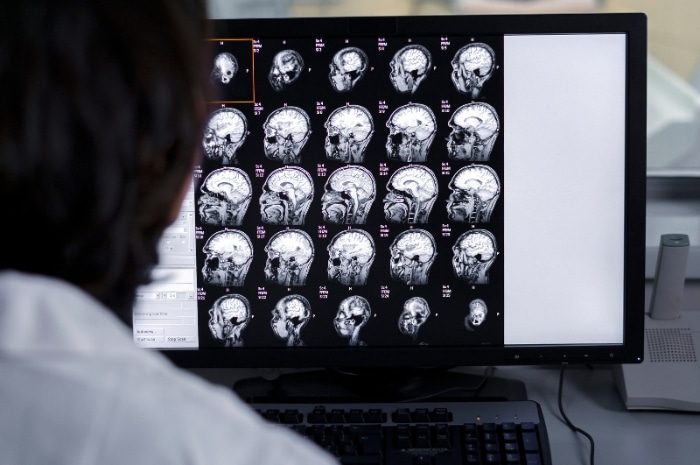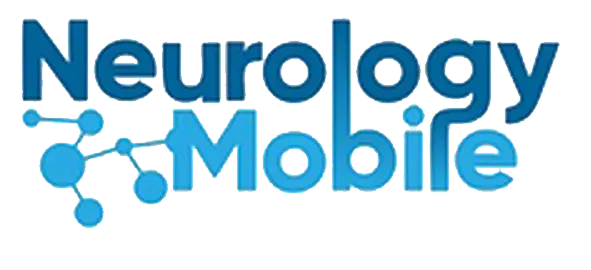4 min read
Unlocking the Mystery: Exploring the Causes and Treatment Options for Amnesia
Are you ready to uncover the secrets of the mind? Join us on a journey to unlock the mystery of amnesia, as we delve into the causes and treatment options for this enigmatic condition. Amnesia is a fascinating yet perplexing disorder that can disrupt the lives of individuals and their loved ones. Whether it is caused by a traumatic brain injury, stroke, or underlying neurological condition, amnesia can leave people struggling to remember their past and navigate their present.
In this article, we will explore the various causes of amnesia, ranging from physical trauma to psychological factors. We will examine the intricate workings of the brain and how these disruptions can lead to memory loss. Additionally, we will discuss the different treatment options available, including therapies, medications, and lifestyle changes that can help improve memory and cognitive function.
Pull up a chair and prepare to unravel the mysteries of amnesia. Together, we will shed light on this puzzling condition and discover the path towards recovery and understanding.

What is amnesia?
Amnesia is a complex neurological disorder characterized by partial or complete loss of memory. It can affect various aspects of a person’s life, including their ability to recall past events, form new memories, and recognize familiar faces or places. Amnesia can be temporary or permanent, depending on the underlying cause and severity of the condition.
There are different types of amnesia, each with its own distinct characteristics and causes. Understanding these types can provide valuable insights into the nature of the condition and guide treatment strategies.
Types of amnesia
1. Anterograde amnesia: This type of amnesia involves the inability to form new memories after the onset of the condition. Individuals with anterograde amnesia may struggle to remember recent events or conversations, but their long-term memories remain intact.
2. Retrograde amnesia: Retrograde amnesia refers to the loss of memories that occurred before the onset of the condition. Individuals with retrograde amnesia may have difficulty recalling past events, personal experiences, or even their own identity.
3. Transient global amnesia: Transient global amnesia is a temporary form of amnesia characterized by a sudden and temporary loss of memory. It typically lasts for a few hours and is often triggered by emotional stress or physical exertion.
4. Post-traumatic amnesia: Post-traumatic amnesia occurs as a result of a traumatic brain injury. It is characterized by a period of memory loss following the injury, ranging from minutes to weeks or even months. The duration of post-traumatic amnesia can vary depending on the severity of the injury.

Causes of amnesia
Amnesia can be caused by a variety of factors, ranging from physical trauma to psychological conditions. Understanding the underlying causes is crucial in developing an effective treatment plan. Here are some common causes of amnesia:
1. Traumatic brain injury: Severe blows to the head, such as those sustained during car accidents or falls, can result in amnesia. The impact of the injury can disrupt the normal functioning of the brain, leading to memory loss.
2. Stroke: A stroke occurs when the blood supply to the brain is interrupted, causing damage to brain cells. Depending on the area of the brain affected by the stroke, amnesia can occur as a result.
3. Neurodegenerative diseases: Conditions like Alzheimer’s disease, Parkinson’s disease, and Huntington’s disease can cause progressive memory loss and cognitive decline, leading to amnesia.
4. Psychological trauma: Emotional or psychological trauma, such as experiencing a traumatic event or undergoing extreme stress, can trigger amnesia as a defense mechanism. The mind may block out memories associated with the traumatic experience to protect the individual from emotional distress.
5. Infections and diseases: Certain infections, such as encephalitis or meningitis, can cause inflammation in the brain, leading to memory loss. Other medical conditions, such as brain tumors or epilepsy, can also contribute to the development of amnesia.
Symptoms of amnesia
Symptoms of amnesia The symptoms of amnesia can vary depending on the type and severity of the condition. Some common symptoms include:
1. Memory loss: The most prominent symptom of amnesia is the inability to remember past events or form new memories.
2. Confusion: Individuals with amnesia may experience confusion or disorientation, particularly when trying to recall information or navigate familiar surroundings.
3. Difficulty learning new information: People with amnesia may struggle to retain new information or learn new skills.
4. Lack of awareness of the memory loss: In some cases, individuals with amnesia may not be aware of their memory loss, leading to frustration or confusion when confronted with their inability to remember.
Diagnosing amnesia
Diagnosing amnesia involves a comprehensive evaluation of the individual’s medical history, symptoms, and cognitive function. A healthcare professional, such as a neurologist or neuropsychologist, may conduct various tests and assessments to determine the underlying cause and severity of the amnesia. These may include:
1. Medical history review: The healthcare professional will gather information about the individual’s medical history, including any previous injuries, illnesses, or psychological trauma.
2. Physical examination: A thorough physical examination may be conducted to assess overall health and identify any signs of neurological abnormalities.
3. Neuropsychological testing: These tests evaluate cognitive function, memory, and other aspects of brain function. They may include memory recall tasks, problem-solving exercises, and assessments of attention and concentration.
4. Brain imaging: Imaging techniques like MRI or CT scans may be used to examine the structure and functioning of the brain, helping to identify any abnormalities or injuries.

Treatment options for amnesia
While there is no specific cure for amnesia, various treatment options can help manage symptoms and improve cognitive function. The choice of treatment depends on the underlying cause, severity of the amnesia, and individual needs. Here are some common treatment options:
1. Cognitive rehabilitation: Cognitive rehabilitation programs focus on improving memory, attention, and problem-solving skills through targeted exercises and strategies. These programs are tailored to the individual’s specific needs and may involve activities like memory training, mental exercises, and learning strategies to compensate for memory deficits.
2. Medications: In some cases, medications may be prescribed to manage underlying conditions or symptoms associated with amnesia. For example, medications used to treat Alzheimer’s disease may help slow down cognitive decline and improve memory function.
3. Psychotherapy: Psychotherapy can be beneficial for individuals with amnesia, particularly those who have experienced psychological trauma. Therapists can help individuals process and cope with their emotions, develop strategies to manage memory loss, and improve overall well-being.
4. Lifestyle changes: Adopting a healthy lifestyle can have a positive impact on memory and cognitive function. Regular exercise, a balanced diet, stress management techniques, and adequate sleep can all contribute to improved brain health.
Cognitive rehabilitation for amnesia
Cognitive rehabilitation is a crucial component of amnesia treatment. It focuses on improving memory, attention, and cognitive skills through targeted exercises and strategies. Cognitive rehabilitation programs are tailored to the individual’s specific needs and can be conducted in various settings, including hospitals, rehabilitation centers, or even at home with the guidance of a healthcare professional.
These programs typically involve a combination of memory training exercises, problem-solving activities, and strategies to compensate for memory deficits. The goal is to enhance the individual’s ability to retain and recall information, improve attention and concentration, and facilitate daily functioning.
Coping strategies for individuals with amnesia
Living with amnesia can be challenging, but there are strategies that individuals can employ to cope with their memory loss and navigate daily life. Some helpful coping strategies include:
1. Use memory aids: Utilize tools like calendars, reminder apps, or sticky notes to help remember important dates, appointments, or tasks.
2. Establish routines: Establishing consistent daily routines can help provide structure and support memory recall.
3. Practice mindfulness: Engaging in mindfulness exercises, such as meditation or deep breathing, can help reduce stress and improve focus and attention.
4. Stay socially active: Maintaining social connections can provide mental stimulation and emotional support, which are essential for overall well-being.

Support and resources for individuals with amnesia
Individuals with amnesia, as well as their loved ones, can benefit from various support and resources available. These include:
1. Support groups: Joining support groups or online communities for individuals with amnesia can provide a sense of belonging, as well as an opportunity to share experiences and coping strategies.
2. Professional assistance: Seeking guidance from healthcare professionals, such as neurologists, neuropsychologists, or therapists, can help individuals navigate the challenges of amnesia and access appropriate treatment options.
3. Educational materials: There are numerous books, articles, and websites dedicated to providing information and resources about amnesia. These can help individuals and their families better understand the condition and find additional support.
4. Caregiver support: It is important to acknowledge the impact of amnesia on caregivers and provide them with the necessary support and resources to manage the challenges they may face.
Conclusion
Amnesia is a complex and often mysterious condition that can have a significant impact on individuals and their loved ones. By understanding the causes, symptoms, and treatment options for amnesia, we can begin to unravel the mysteries of this enigmatic disorder. From cognitive rehabilitation programs to coping strategies and support resources, there are various tools available to help individuals with amnesia navigate their journey towards recovery and understanding. Together, let us shed light on this puzzling condition and empower those affected by amnesia to live fulfilling lives, despite the challenges they may face.
Remember, the mind may forget, but the human spirit is resilient.
